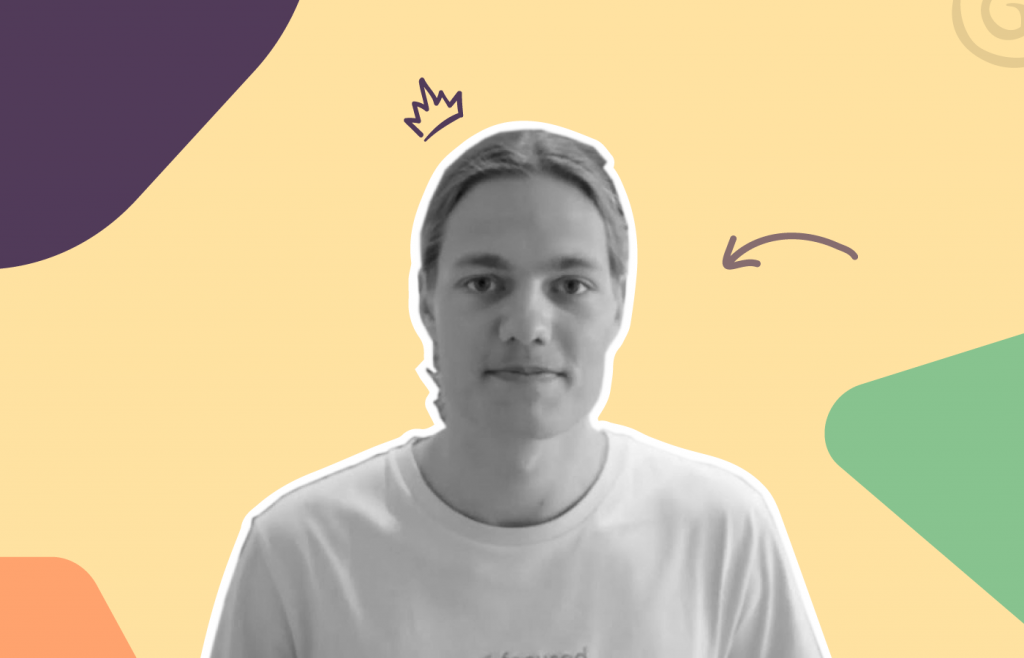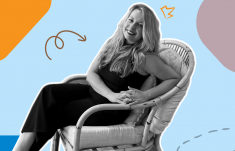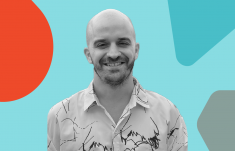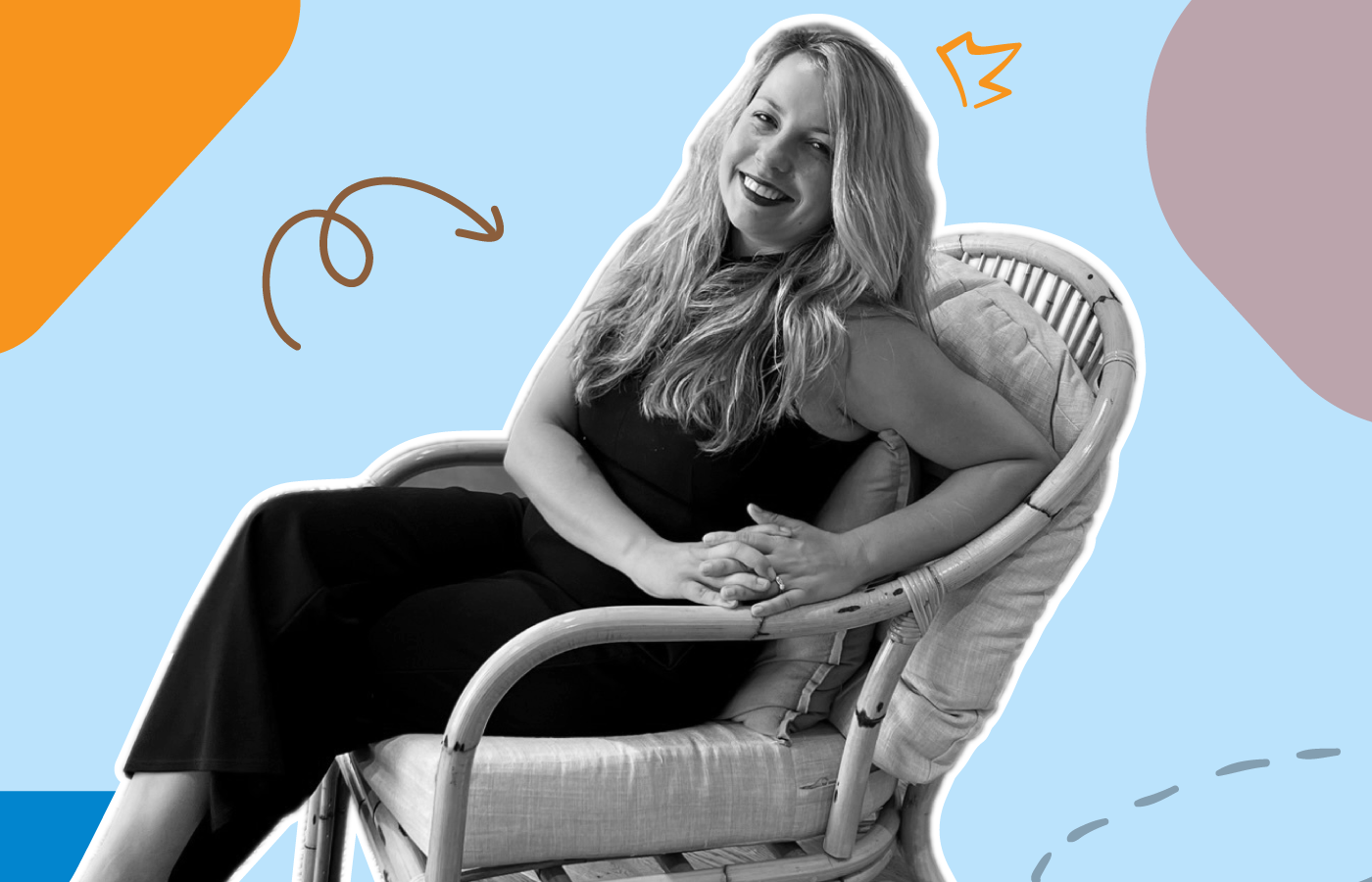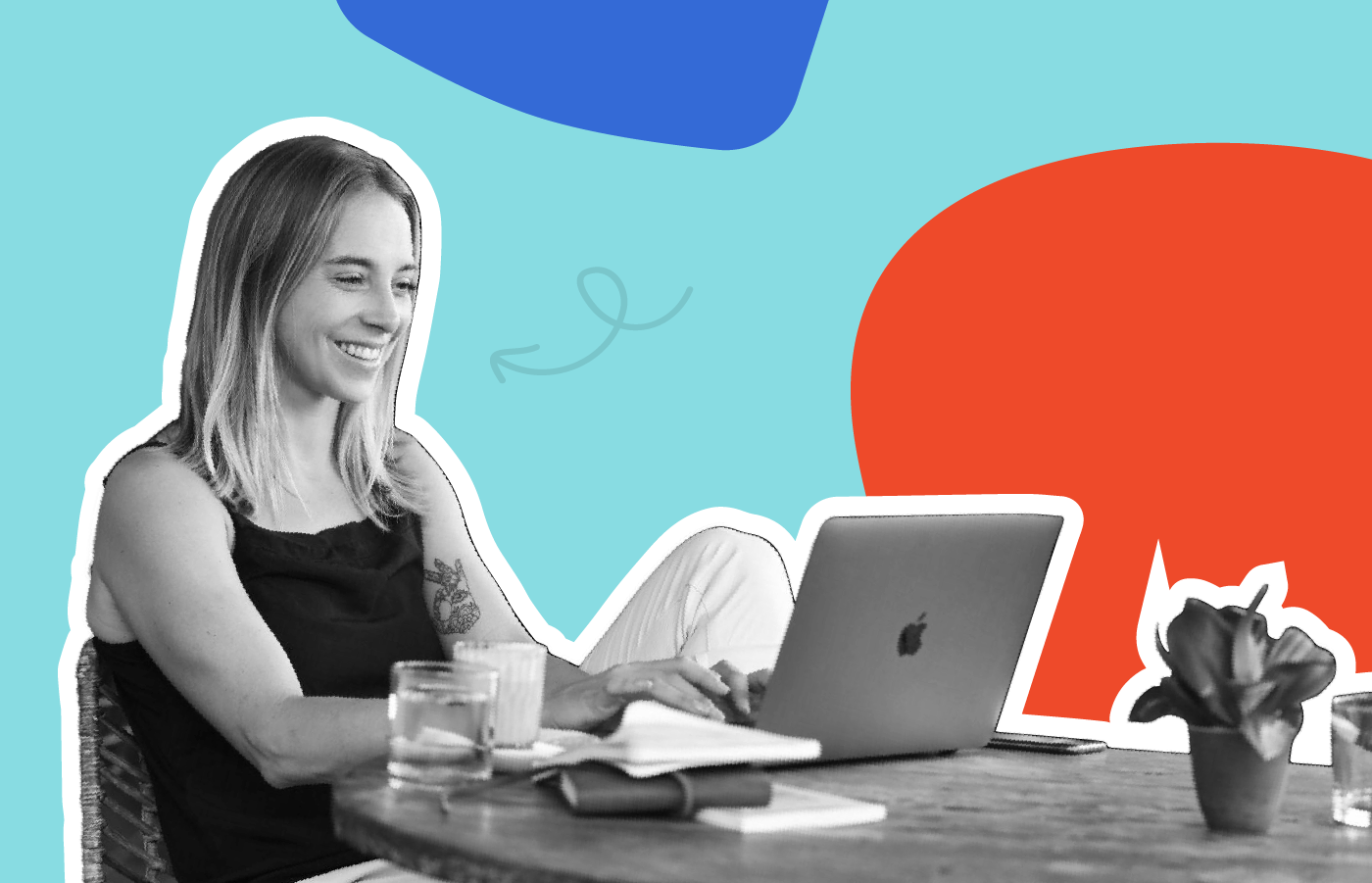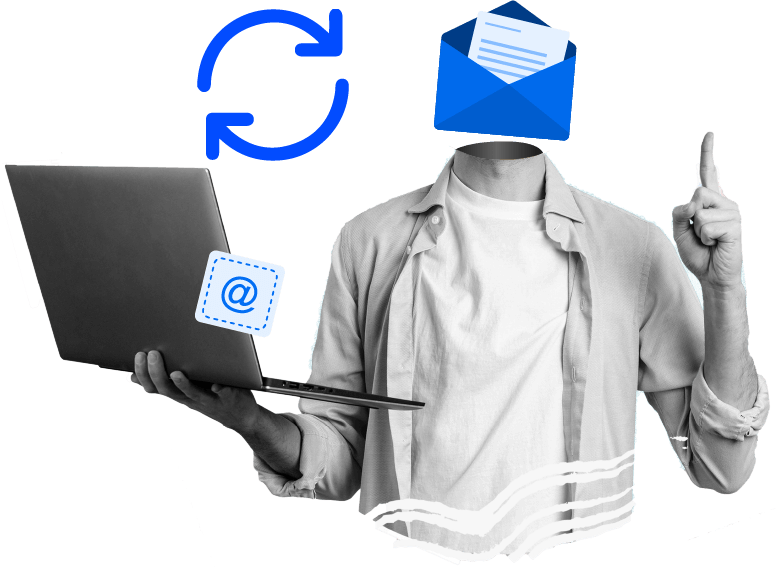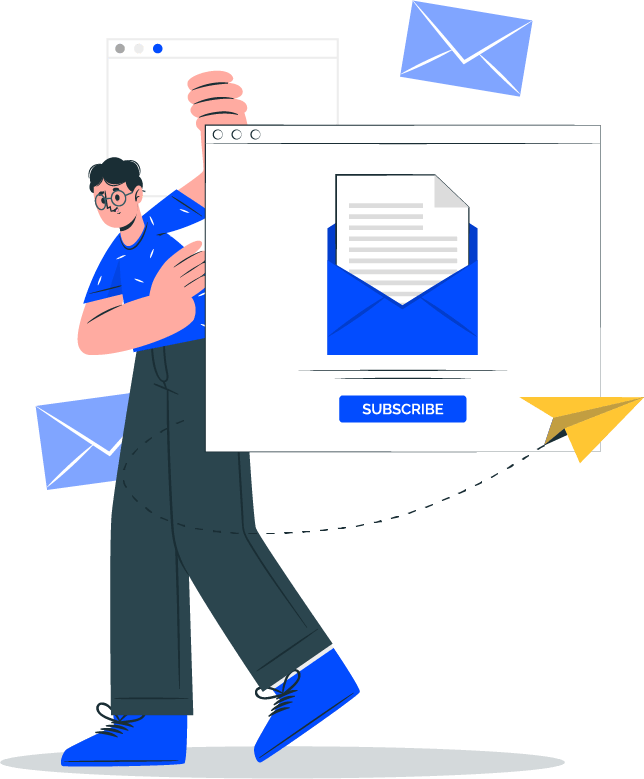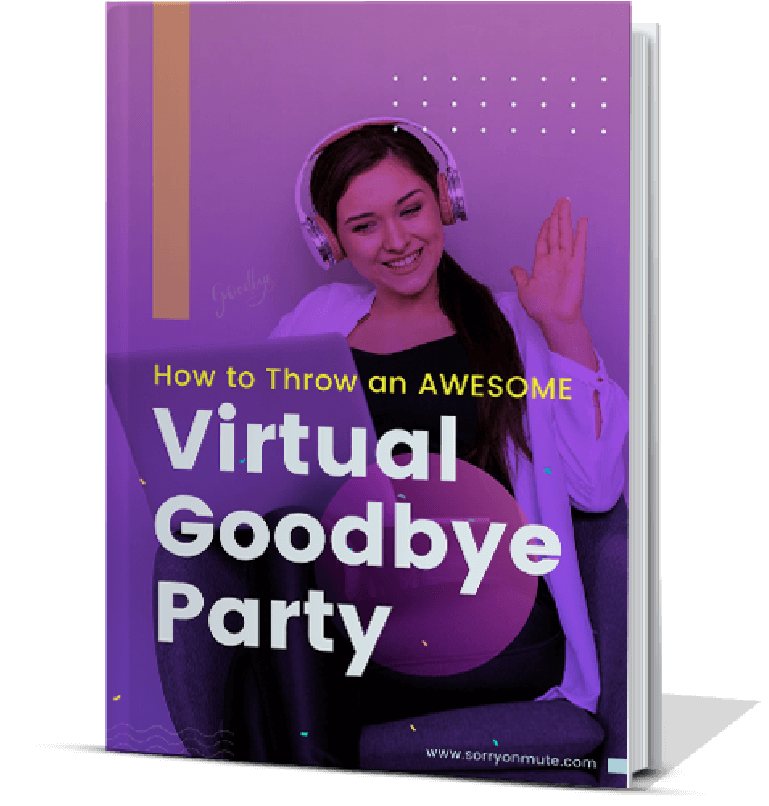As remote and hybrid work setups become permanent fixtures in the workplace, we're seeking insights from those experiencing it, speaking to remote workers, remote/distributed team managers and leaders in the transforming remote tech space!
Today, we're in conversation with Cameron Bogatez, the founder of Converted Agency and his newsletter Conversion Examples.
A quick look at Conversion Examples will show you that it isn’t like the stodgy newsletters of the past. It is a quick and snappy take on real-world problems and how one can combat them. The layout is clean and you will find some great humour interspersed through the content. So, it's only fitting when we sat down for this interview, Cameron decided to open with one of his classic jokes.
“I told a joke on a Zoom meeting. And no one laughed. It turns out I'm not remotely funny.”-Cameron
Well, on this note we are going to start this interview;
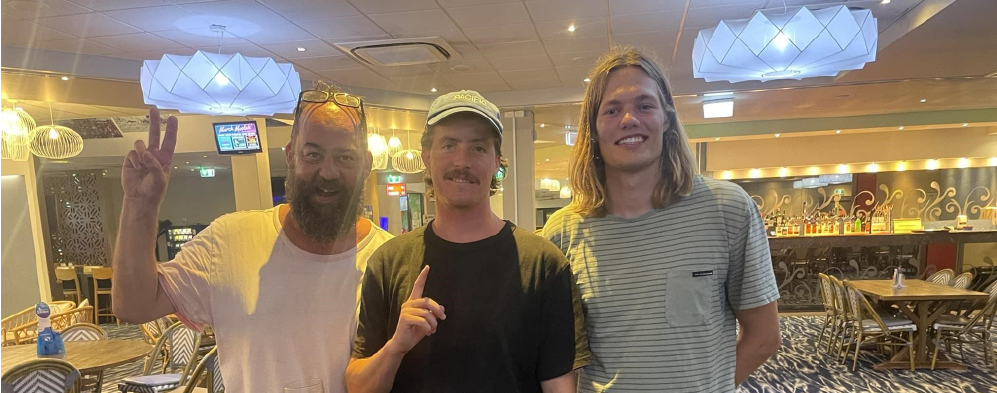
1. Could you tell us a bit about yourself? We'd love to hear about your background and what led you to where you are today.
I consider myself a generalist, as I have always enjoyed a variety of activities. Working in startups has been a particular interest of mine, and I have been developing apps since I was 14. This passion has led me to pursue the idea of working on my own terms, which is why I started my own agency. Additionally, I enjoy writing about product psychology and strategies to enhance conversion rates for websites and apps.
2. Can you tell us a bit about your newsletter? I'm a big fan and read it every week!
I have a website called ConversionExamples.com, which focuses on the importance of product psychology for successful conversions. Many products fail, and understanding product psychology is crucial for achieving success. Highly successful startups employ secret design techniques that help them stand out. For instance, chatbots are a big trend at the moment. One interesting strategy they use is intentionally typing responses slowly, even though the AI often generates the answer within a second. This deliberate delay creates a perception of higher value, improves digestibility and adds a touch of human-like interaction. It's quite fascinating.
3. You are one of the younger members of the Fishburners. When did you graduate from university?
About a year and a half ago, I graduated with a degree in mathematics and commerce, even though it's unrelated to my current pursuits. I consider myself a generalist because I have a wide range of interests and enjoy exploring various fields.
4. It's a bold and admirable decision to jump into the world of start-ups right after graduating. I'm curious to know if this was a common trend among your peers or if you were more of an outlier. What motivated you to go against the prevailing wave and pursue this path?
It was definitely a challenging decision and I don't think many people in my circle made the leap to startups. Most individuals tend to opt for corporate jobs as they offer a more secure path and potentially higher earnings. However, I believe my father's entrepreneurial background served as an inspiration from a young age.
Additionally, my experience in building apps and working on exciting projects since my early years made the transition feel like a natural progression. I genuinely find enjoyment in the challenges that come with it, even though it can be tough at times.
5. We'd love to hear more about your businesses and how they make a positive impact in the world of remote work. What inspired you to start them and how does it help remote workers and companies overcome the challenges of working in a distributed environment?
Firstly, I believe that my projects, particularly my newsletter Conversion Examples, have a significant impact on remote work. The goal is to share valuable insights and trade secrets of product design globally. By doing so, I hope to attract talented designers from different parts of the world, fostering collaboration on diverse projects. Traditionally, this knowledge has been concentrated in Silicon Valley, primarily utilized by major social media companies like Snapchat and Instagram, who have invested heavily in understanding product psychology.
However, this field is still relatively new, and smaller companies are now beginning to learn about it. My aim is to spread this knowledge beyond Silicon Valley and empower remote freelancers and designers with different perspectives to contribute to these discussions.
I have another business called UnScroll, which is an app designed to help people spend less time on social media. Both UnScroll and Conversion Examples stem from my deep concern about the psychological tricks and mind games that impact us daily. I'm worried about the future, especially with the rapid progression from Instagram to TikTok and the increasingly powerful manipulation of user psychology.
As we potentially move towards a metaverse in the coming years, these concerns become even more significant. My interest lies in educating people about these issues while also promoting mindfulness and healthier digital habits. This serves as my inspiration for both ventures.
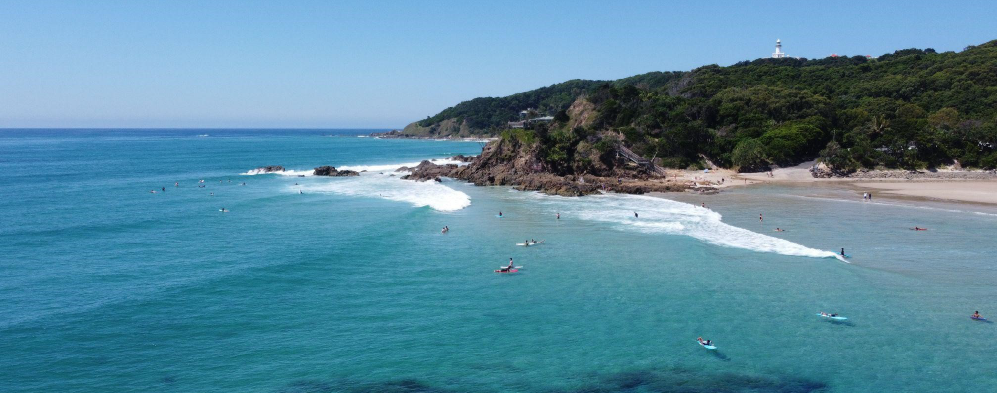
7. What has been your experience with remote work, and how has it differed from working in a traditional office environment?
I’ve worked from anywhere between my home and my tent.
One of the advantages of having an office is the built-in stability and routine it provides without much effort. However, once you step away from an office setting, intentionally creating habits and routines becomes crucial for maintaining consistent work. During my recent camping trip that lasted about a month, I found myself constantly in different locations with limited reception and suboptimal working setups.
To navigate this challenge, I adopted a strategy of creating tiny habits inspired by the concepts of BJ Fogg, a prominent thought leader in behaviour design and product psychology. The idea behind this approach is that small habits are difficult to break and easy to adjust, making it easier to establish a solid routine regardless of the setting or circumstances.
8. It's great to see remote work and the concept of being a digital nomad gaining more mainstream recognition. Could you please share more about your experience in this unique working environment?
If you can work remotely from home, then theoretically, you can also work while camping. When I mention camping, I'm referring to car camping, where you have a car and a decent tent. There are a few challenges to address when camping, such as shelter, electricity, and reception, but each of these challenges can be solved.
For shelter, having a reasonably sized car and a gazebo or similar cover, along with a folding table and chair, can provide adequate protection from the elements, be it rain, wind, or cold weather.
Reception can be a bit more challenging, but in Australia, for example, reception is generally good within about 10 kilometers of a decent town due to the country's size and extensive coastal areas. Additionally, the emergence of technologies like the Starlink satellite system holds promise for improving connectivity even in more remote locations.
So, while there are certain considerations to address, camping while working can be a viable option with the right preparation and solutions in place.
9. Tell me, what does an average day look like for you in this cycle? What would it be like?
During my camping days, I might need to make a trip to the nearest town for supplies like water or to take care of other necessities. It's important to plan and be prepared for these tasks.
One thing worth mentioning is that when camping, even the simplest tasks tend to take longer. Cooking and taking care of oneself require more intention and adaptability in this environment, as it's not as convenient as being at home.
Overall, camping while working requires being mindful and intentional about various aspects of daily life, but it also provides unique opportunities for adventure and a closer connection with nature.
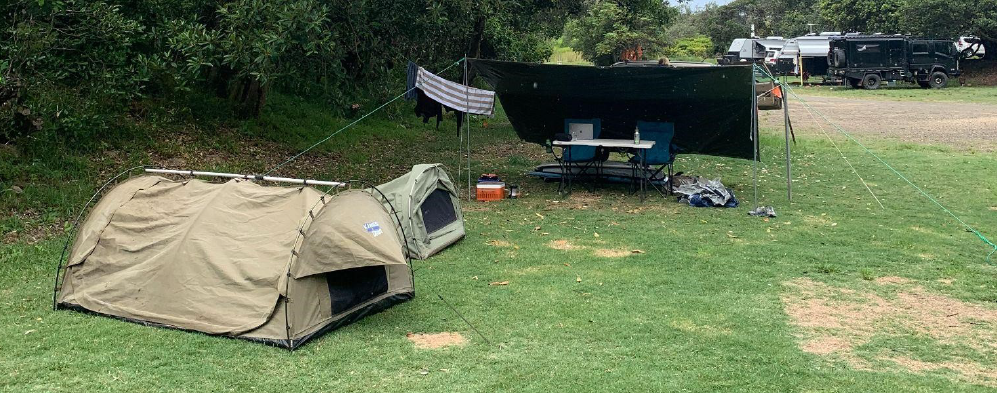
10. What would it be like when you worked? What was your setup like?
During my camping trips, I would set up a trestle table and a camping chair as my dedicated workspace. In addition to working at the campsite, I also spent time working in town at cafes. When the cafes closed, but I still wanted to continue working or stay in the town, I would find a cozy spot inside my car. It offered a convenient and private space to continue my work.
Actually working in bed while camping proved to be challenging because it created a mindset of relaxation and sleep rather than focusing on work tasks. However, what I found fascinating was the lack of distractions during the nighttime while camping. With no bustling activities around, most people tended to go to bed early, around 6 to 8 o’clock.
This unique environment provided me with an opportunity to work during the quiet hours of the night. With fewer distractions and a peaceful atmosphere, I was able to accomplish a significant amount of work during those late-night sessions.
Overall, the camping experience offered both challenges and advantages in terms of finding the right work environment and utilizing quiet nights to maximize productivity.
11. Did you come across many other people doing this in the various campsites? Has it become a more common occurrence where people are working at campsites with the rise of remote work?
While I believe there are likely other people who engage in working while camping, I didn't come across many during my experiences. Most of the individuals at the campsite, including those at the holiday park, were on vacation with their families. It seemed like a popular choice for parents to take their children out of school for a holiday getaway.
Although I didn't encounter many fellow campers working like me, it's possible that there are others documenting their camping work experiences on platforms like Instagram. Nonetheless, my focus was primarily on enjoying my own camping journey rather than seeking out others with similar working arrangements.
12. Would you do it again?
Yes, I’ll definitely do it again. It was really enjoyable. The only thing holding me back from going away spontaneously is that it requires a bit of planning.
One seemingly tiny but really important detail is ensuring that your belongings are easily accessible in the car. It can be challenging to navigate a small space on the road, so organizing your items in a way that allows for easy retrieval is key. Consider your daily routines at home and identify the main activities you’ll need to perform while camping, such as using the toilet, brushing your teeth, and cooking. Adapt your cooking plans to accommodate the limited resources available, perhaps opting for simple meals like pasta that are both convenient and satisfying. Additionally, safe and mindful driving is crucial during your camping adventures.
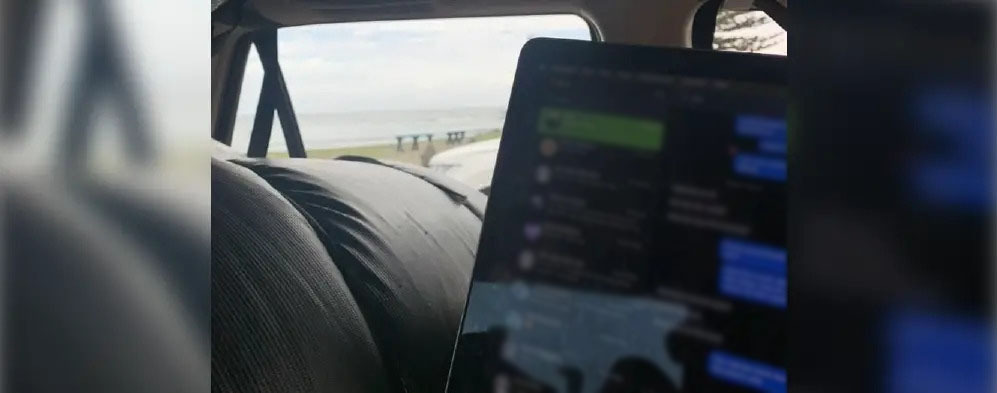
14. What advantage did you find in this setup over a more traditional remote work setup?
Choosing to go camping and work on the road was driven by my desire to surf along the coast. It allowed me to explore fascinating locations beyond just cities and towns. Although I did spend some time in bigger places like the Gold Coast where work was more convenient, being on the road was incredibly enjoyable.
15. Were there any resources or things that you read to prepare you for this?
Not really, I just winged it. I've been camping a lot. And so I kind of knew my basic camping setup would be fine. I guess it wasn't making too much of a leap to add work to my normal camping stuff.
 Interested in Virtual Team Building Events?
Interested in Virtual Team Building Events?



